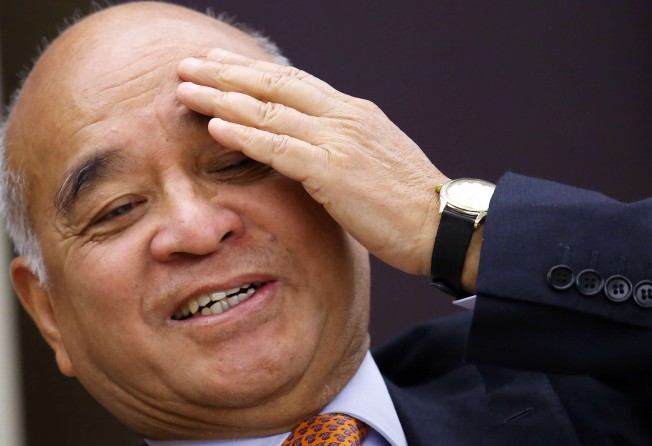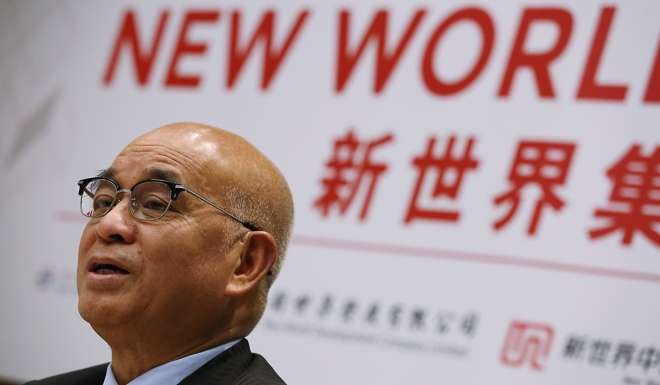New World Development posts better-than-expected core earnings
The developer’s full-year underlying profit gained 1.77 per cent to HK$6.89 billion, boosted by sale of mainland assets

New World Development (NWD) has posted better-than-expected core earnings for the 12 months to June 30, as property sales income grew.
The Hong Kong-based developer, chaired by Henry Cheng Kar-shun, said its underlying profit, which exclude property revaluation gains, were HK$6.89 billion, a 1.77 per cent rise on the previous year. Net profit was HK$8.67 billion, a 54.65 per cent decline as property revaluations fell to HK$307.3 million from HK$3.17 billion in 2015. Revenue rose 7.83 per cent to HK$59.57 billion.
The underlying result was better than forecasts made by Bank of America Merrill Lynch, Citi and Macquarie, which ranged from HK$6.2 billion and HK$6.7 billion.
Profit contribution from property development in Hong Kong during the year amounted to HK$2.98 billion. Those property developments include Pavilia Hill in North Point, Parkhill in Yuen Long and Double Cove Starview Prime and Double Cove Grandview, both in Ma On Shan.
Recent sales of residential units for projects completed in previous financial years counted towards the results, and the company’s bottom line was also partly helped by the sale of its mainland assets to China Evergrande, one of the country’s leading home builders.
NWD’s mainland unit New World China Land sold three projects – one each in Hubei, Guangdong and Hainan provinces – to Evergrande in December for a total of HK$16.36 billion.
A month later NWD and controlling shareholder Chow Tai Fook Enterprises announced the sale of five more projects in mainland China to Evergrande for HK$24.4 billion.
The sale marked a change of strategy for NWD in mainland China by focusing more resources on higher-tiered cities and scaling down lower-tiered cities.
As part of the restructuring of its mainland business, NWD in August privatised New World China Land which was valued at HK$21.5 billion.
Macquaire ,which had expected NWD’s 2016 underlying earnings to stay fairly flat at HK$6.7 billion, said the outlook is positive in view of strong sales in China and Hong Kong.

“We estimate its core earnings compound annual growth rate of 15 per cent to HK$8.8 billion in 2018,” Macquarie analyst Raymond Liu said in a research report earlier this month.
Analysts are also upbeat about the company’s latest investment in Qianhai, an indicator of the company’s new focus on first and second-tier cities.
NWD in mid-August successfully acquired a prime Shenzhen Qianhai commercial project by partnering with its parent company Chow Tai Fook group under a 30:70 joint venture.
The total acquisition cost of the development was 4.2 billion yuan, with average land cost attractive at 24,700 yuan per square metre, thanks to the high entry barrier of the land auction, according to Macquarie.
“The company is permitted to sell one office tower (55,000 square metres) to a foreign Fortune 500 financial institution and we estimate its average selling price at 70,000 yuan per square metre,” said Liu in the research note.
NWD’s directors declared a final dividend for the year of 31 HK cents per share, compared to 30 HK cents per share in 2015. Together with the interim dividend of 13 HK cents a share, the full-year dividend amounted to 44 HK cents a share, up from 42 HK cents a share a year earlier.
The board has proposed that shareholders be given the option to receive the final dividend in new shares in lieu of cash.